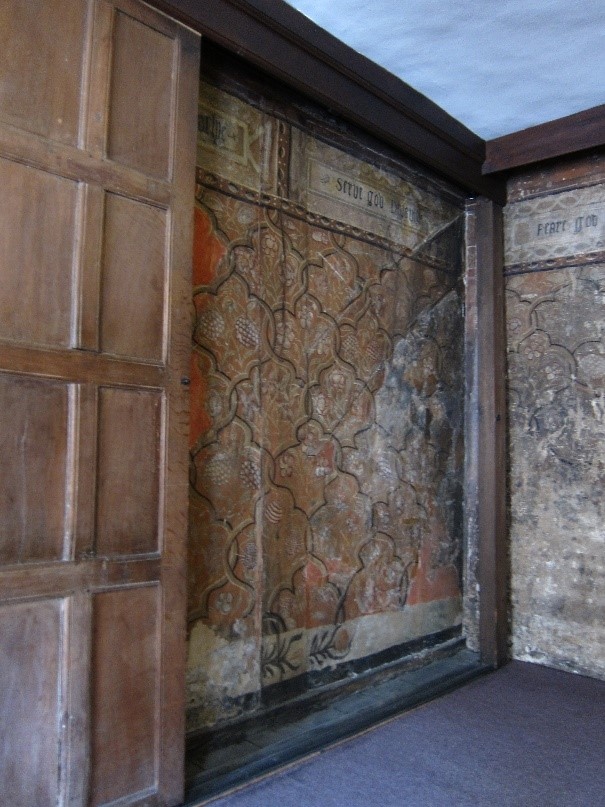William Shakespeare: Life Story
Chapter 6 : The King's Men
Elizabeth I died in March 1603, some six weeks after watching the last play performed for her by the Lord Chamberlain’s Men. She was succeeded by King James VI of Scotland who now became James I of England, although he liked to use the title King of Great Britain.
King James was a man of some culture (although personal hygiene was not one of his virtues). Within two weeks of his arrival in London, in May 1603, he had adopted the Lord Chamberlain’s Men and renamed them the King’s Men. Shakespeare, along with his colleagues Richard Burbage, Augustine Phillips, Lawrence Fletcher, John Heminges, Henry Condon, William Sly, Robert Armin and Richard Cowley, were named in the Letters Patent issued under the great seal.
Rival theatre companies, the Admiral’s Troop, who had performed first at the Rose, near the Globe, and later at the Fortune, north of the river, and the Earl of Worcester’s Men, became Prince Henry’s and Queen Anne’s Men respectively.
Shakespeare and his colleagues were now Grooms of the King’s Bed Chamber, although they were not required to undertake any duties in that capacity. This entitled each of them to four and a half yards of scarlet cloth to be worn at the King’s coronation procession. Shakespeare never had the chance to wear his royal livery as the procession was cancelled for fear of plague.
Over the following thirteen years the King’s Men performed at court on 187 recorded occasions. James was rather more free with his money than Elizabeth had been and paid almost double the fees that she had.
Shakespeare was clearly well-known individually, rather than just being seen as one of the players. In 1603 he played at Wilton House, near Salisbury, to entertain the King on his visit to the Countess of Pembroke. They played As You Like It for the very fine fee of £30.
By 1604 Shakespeare had moved back north of the Thames to the corner of Monkswell and Silver Street in Cripplegate where he lived as a lodger of Christopher Mountjoy. It has been suggested, on no discernible evidence, that Shakespeare and Mrs Mountjoy were lovers. If they were, her husband either did not know, or did not care, as Mountjoy requested Shakespeare’s help in the negotiations for the marriage of his daughter, Mary, to Stephen Belott.
Father and fiancé were haggling over the terms of the dowry and Shakespeare negotiated a settlement. Unfortunately, following the marriage, Mary’s new husband fell out with her father – setting himself up as a business rival resulting in Mountjoy withholding £50 of the £60 dowry. Despite reconciliation on the death of Mrs Mountjoy, trouble resurfaced and Shakespeare was summoned out of retirement in 1612 to give evidence in a court case. He seems to have been remarkably hazy about the details and failed to turn up at the second hearing.
Shakespeare continued to build up a property portfolio for himself in Stratford, purchasing land and tithe rights for the sum of £440 in the summer of 1605, but this did not prevent him writing.
He produced Othello, followed up by King Lear, the latter of which was performed at Whitehall in front of King James on the 26 December 1606 during the state visit of the King’s brother-in-law, King Christian of Denmark. James and Christian were also treated to Macbeth, which although completely ahistorical in its narration of the actual events of the reigns of Duncan and Macbeth, was designed to exalt the King, descended from Banquo, at least according to the Scottish historian John Leslie’s History of Scotland.
It has been alleged that in 1605 Shakespeare fathered an illegitimate child. The story is that en route between London and Stratford he usually stayed at an inn called the Bull Inn in the Cornmarket at Oxford, opposite the current day Golden Cross.
The couple who ran the inn were John and Jeanette Davenant who had previously lived in London, near the Globe – a circumstance which leads Shakespeare’s biographer to infer that they were old friends. Mrs Davenant had borne six children, all of whom had died, and the couple decided to move to the country to improve her health. Once settled in Oxford the lady bore seven children, all of whom survived. It has been suggested that one of these children, William, was actually Shakespeare’s.
William Davenant became a well known poet and playwright during the reigns of both Charles I, and after the Restoration. He was also the first theatre manager to put women on the stage. According to John Aubrey, Davenant, when tipsy, would claim to have been invested with the very spirit of his godfather, William Shakespeare, and would allow people to infer that he was Shakespeare’s son.
There is no written evidence that Shakespeare was Davenant’s godfather and one might question whether, amongst seven children, Mrs Davenant could possibly be certain that one was not her husband’s, even if she had had an affair. This whole tale is told by John Aubrey in his life of Shakespeare, which is not generally considered to be particularly accurate. Of course, people do have affairs, and Shakespeare seems to have seen little of his wife, so perhaps it is true.






